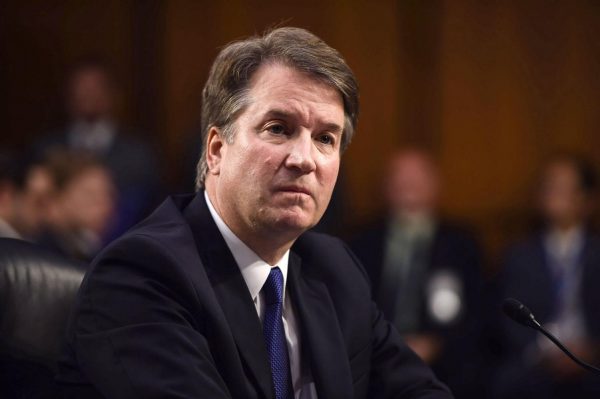After a third accuser came forward in Brett Kavanaugh’s Supreme Court nomination hearing, all 10 Democrats on the Senate Judiciary committee called for Kavanaugh’s nomination to be withdrawn. However, despite Democratic Judiciary committee unity, there has been spectrum-wide criticism of how Democrats have conducted themselves. The editorial boards of both the Wall Street Journal and the New York Post have called this hearing a distortion of our legal system and a political circus, and Supreme Court Justice Ruth Bader Ginsburg has called it a “highly partisan show”.
The Republican Party, as any political party, is stuck between a rock and a hard place—do they confirm a candidate they believe is fit for office, or do they go through a potentially lengthy investigation, giving credibility to uncertain evidence? As the evidence stands—uncertain whether the accusers are telling the truth or lying—the Republicans should confirm Kavanaugh.
THE EVIDENCE
Currently, three accusers have come forward against Kavanaugh: Christine Ford, Deborah Ramirez and Julie Swetnick.
While each one has their story, none of them come without severe hiccups. There has been no corroboration of evidence. All of Ford’s and Ramirez’s witnesses that have been named have denied the event, have no recollection of the party or claim to have never met Kavanaugh. Ramirez was intoxicated at the time and cannot remember if it was Kavanaugh or not. And Swetnick, having claimed that Kavanaugh spiked punch at parties to allow women to get raped, has yet to provide any witnesses.
However, to the contrary, Swetnick’s ex-boyfriend has provided court evidence for a restraining order and has argued that she is not a credible witness, saying, “Right after I broke up with her, she was threatening my family, threatening my wife and threatening to do harm to my baby at that time.”
While it is hard to tell whether the accusers are telling the truth, a decision regarding Kavanaugh must be made.
BELIEVE OR NOT TO BELIEVE?
There are two responses to these accusations: believe the alleged victims or believe Kavanaugh. However, each response comes with a cost.
The first solution assumes guilty until proven innocent. The impacts are two-fold. In one instance, it is no longer the accuser who has the burden of proof, but the accused. Kavanaugh is guilty of sexual assault until he can prove beyond a doubt that he is innocent. Additionally, this move creates precedent for an extremely low standard to derail a Supreme Court nomination—no corroboration is required, no witnesses, just a single accusation.
The second solution assumes innocent until proven guilty. The impacts are two-fold. In one instance, this response agrees with the United States’ legal proceedings—placing the burden of proof on the accuser and not the accused. Kavanaugh is innocent until proven guilty. Additionally, this move provides a higher standard for what should derail a Supreme Court nomination that is consistent with established law.
The first comes at the cost of turning the Supreme Court hearing into a nightmare of conjecture and mob rule. The second comes at a cost of cutting out potentially legitimate clams and discouraging other sexual assault victims from naming accusers.
The counter-response to the second solution is that the hearings are not a court of law. And that is correct. However, the proposal that we should evaluate Kavanaugh with a court-standard criterion is not an argument that a Senate hearing is “a court hearing,” but rather is a defense for legal precedent and integrity. The United States has used this standard of justice for generations because it provides the best criterion for justice. And if we are pursuing justice, then this standard should be used.
KAVANAUGH SHOULD BE CONFIRMED
Given that we cannot have certainty about the evidence either way, a decision must be made. The United States’ legal standard is that the accused is innocent until proven guilty. The evidence so far provided does not prove Kavanaugh is guilty. Therefore, Kavanaugh should be treated as innocent.
Despite the Democrats on the Senate Judiciary committee unanimously demanding the withdrawal of Kavanaugh’s nomination, the evidence is not consistent with the demand. Just as a composition of bad arguments cannot be strung together to form a good argument, a composition of bad evidence cannot be strung together to form good evidence. In respect for our rule of law and in consideration of the evidence, Kavanaugh should be confirmed.








